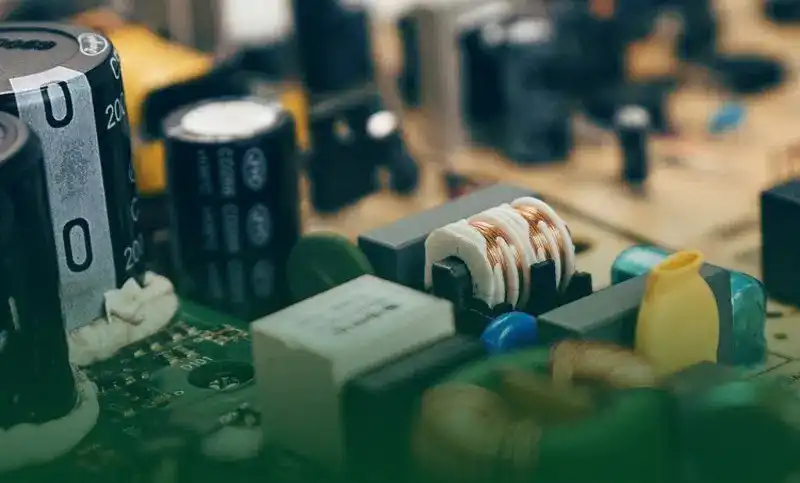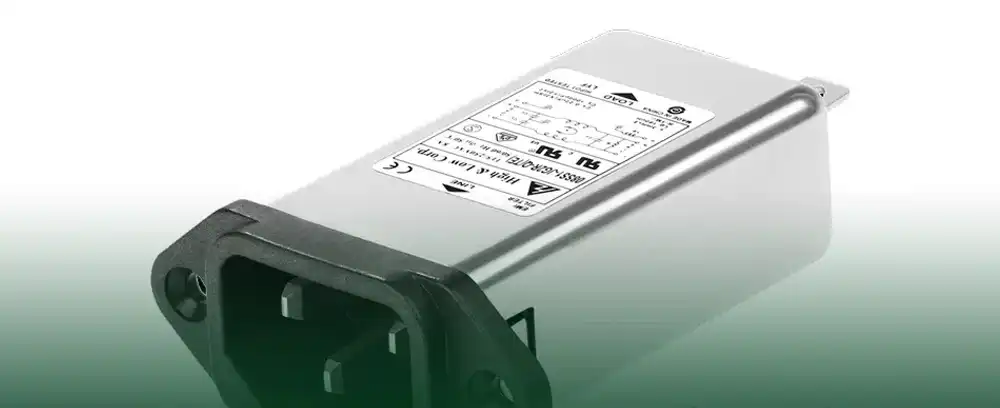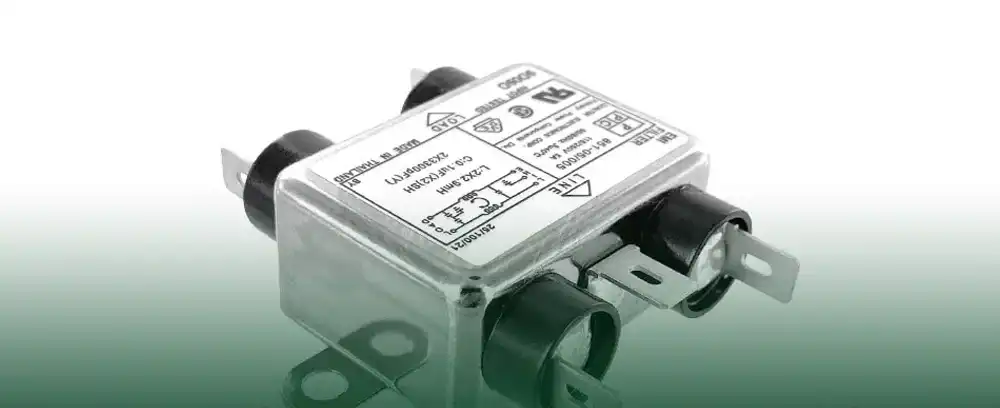
The world of electronic filters is a rich tapestry made of many diverse sorts, each painstakingly crafted to carry out specific functions formed by its innate qualities and response to various frequency ranges. In the world of electronics, filters are essential elements with the ability to precisely control signal transmission.
In the discussion that follows, we dig into the fundamental divisions of electrical filters, illuminating each one’s unique roles and the range of uses to which they are applicable.
An electronic filter is a circuit or device that works in electronic systems to selectively allow some frequencies of electrical signals to flow through while effectively suppressing or blocking other frequencies.
It serves as a discriminating device, attenuating or suppressing frequencies outside of a given range while permitting only those frequencies within that range to travel.
Electronic filters are fundamental parts that enable exact frequency adjustment of signals in accordance with the requirements of a specific application.
Electronic filters come in a broad variety, and each one serves a specific purpose based on its unique characteristics and frequency responses. These filters cover a wide range of sorts, including the following key categories:
First, low-pass filters that let low-frequency sounds through while obstructing higher frequencies.
Additionally, high-pass filters are designed to block lower frequencies while facilitating the transmission of high-frequency data.
Thirdly, band-pass filters are expertly crafted to enable the transmission of a certain frequency band while obstructing frequencies outside of this predetermined range.
Band-stop filters, also known as notch filters, are another option. They are designed to block a certain frequency band while allowing all other frequencies to pass through.
Last but not least, all-pass filters are a special type that allow transmission of all frequencies but may also cause phase shifts.
The ability of electronic filters to change the frequency content of electrical signals is their primary purpose. The removal of unwanted noise, improvement of signal quality, extraction of particular frequency components, impedance matching, isolation of multiple signals, and assurance of precise frequency delivery to different components within complex electronic circuits are all made possible by this modification, which is essential in a wide range of applications.
The uses of filters in the field of electronics are incredibly many and crucial. They are used in a variety of fields, such as audio systems where they control speaker crossover networks, equalization, and noise reduction. Filters are essential for wireless system channel selection, signal modulation, and demodulation in the field of communications.
Additionally, filters are used in image and video processing for tasks like sharpening, blurring, and noise reduction, and in control systems, they help to reduce noise and interference in feedback loops. Filters are useful in both power supply systems, where they effectively reduce noise and ripple from DC voltage outputs, and instrumentation, where they make it easier to isolate certain frequencies to assure reliable readings. Filters help the medical industry purify biological signals for in-depth study and diagnosis.

The effective use of electrical components like resistors, capacitors, and inductors is crucial for the operation of filters in circuits. These parts have a complex configuration that creates unique impedance routes for various frequencies. A low-pass filter, for instance, selectively hinders high-frequency signals by exposing them to greater resistance or attenuation, therefore effectively reducing their transmission. The design of the filter and the exact positioning of its parts, which are frequently represented by frequency response curves or transfer functions, are responsible for this behavior.
The essential implementations and mechanisms that distinguish mechanical and electronic filters. Mechanical filters separate unwanted frequencies using physical resonance processes. They are frequently used in radio communications applications.
Electronic filters, on the other hand, are created using electronic parts like resistors, capacitors, and inductors. These filters are a favoured option in many contemporary applications because they are more flexible, small, and adjustable than their mechanical equivalents.
The distinction between passive and active filters is based on how those elements work together and how they operate. Resistors, capacitors, and inductors are the only active elements in passive filters. They run on the energy contained in the input signal and don’t require an additional power source.
Op-amps are active components that are used in active filters to amplify and shape the signal, in contrast to passive filters. These filters are more adaptable for certain applications since they can provide greater gain and can actively modify filter properties.

One well-known producer of electronic filters with an international reputation is Murata Manufacturing Co., Ltd., which is recognized for its broad selection of electronic components, which includes filters.
The electronic materials and parts produced by TDK Corporation, such as filters and inductors, are well recognized.
A leader in the electronics sector, Texas Instruments provides a wide range of analog and digital components, including filter solutions. For its integrated circuits and signal processing solutions, which include filter technology, Analog Devices, Inc. stands out.
Capacitors, especially those essential to filter applications, are the area of expertise of KEMET Corporation.
The skill in RF (radio frequency) filters that Cree, Inc. notably possesses is essential for contemporary wireless communication systems.
It is crucial to recognize that the market for electronic filter producers might change over time, necessitating the verification of the most recent data.
Each type’s significance is very clear in the complex symphony of electrical filters. The differences are crucial, from the tolerant embrace of low-pass filters, which usher low-frequency signals while stifling their high-frequency counterparts, to the accuracy of band-pass filters, which are sculpted to usher a particular frequency band and suppress frequencies outside of it.
The orchestration of electrical systems benefits from the use of band-stop filters, which may selectively block a certain frequency band, and mysterious all-pass filters, which introduce phase changes while allowing all frequencies.
工程师和设计师可以通过了解这些核心类别、将它们与各种应用相协调并最大化其功能来利用电子滤波器的力量,以产生技术辉煌的交响乐。
So that’s about everything you need to know about integrated circuits and how they work. We at Qtech are always ready to give you solid advice about PCBs, PCBA, and ICs. Talk to us today and find out more on what we offer. With over a decade of experience in this field, you’re guaranteed quality always.